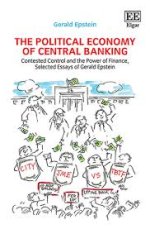Banking & other Politico-Economic Issues
By: Amit Bhushan Date: 19th Nov. 2016
The news media now seems to be pitching & focused on ‘stabilization of banking for the commoners’ as a possible electoral issue for the upcoming polls. With the electoral agents servicing ‘Pani (water)’ and ‘Chai (tea)’ along with their electoral stories (agenda) to the people standing in queues, it seems stage setting might be on already. This is pretty soon likely to move to opening of new bank accounts or helping through identity/address documents and a chunk of India would get educated in banking; if only politicians do not create & wait for hardships to people (but such utopia doesn’t happen), especially in rural areas. What is possibly required now is that the hard-nosed politicians rather focus on Jobs and related issues since a majority of pain may have already been endured. How many jobs are being lost in retailing, real estate, jewelry-making etc. and when and how would they come back and why their party is best suited to bring it back? The overall likely impact on the unorganized sector is not yet known though the services are likely to remain buoyant on account of payments, banking, accounting, legal etc. This is because, politicians still seem to be playing by the old ‘Game’ whereas in policy parlance, some new ‘Games’ seem to have set in. This may not augur well, even for those who may want to argue about facism and its effects, since politics is about remaining relevant and not simply about having one’s say for the sake for television coverage.
Persisting with the old RaGas would not help and the new RaGas need to show their mettle. What this may need is better anticipation of how things are likely to get shaped and capitalizing upon political opportunities? The political opportunity abounds when there is all likelihood of a temporary slowdown and some visible impact to local businesses and community. Condemnation of a policy option exercised by the government without talking about the alternate while menacingly swinging and swearing by honesty alone, ignoring any past conduct and not having any fair idea for the future conduct, may mean Tamasha crowds for some but its translation to votes for one’s own party can’t be said with any degree of confidence. While politically some efforts are going on to convince people on why they should not be going with a select party or neta however little effort seem to be on to convince people in favour of selecting a particular neta through clear articulation of the policies and likely results. The argument set for what should be pursued and in what priority and manner and for defining results. The people would obviously be looking at past track record besides current promises/arguments for evaluation and this sets the ball to capitalize in different performance periods amongst political leaders and parties. The netas do not want to talk about or depict how they would act to support people tide through difficulties. A stewardship in this regards might help establish national credentials rather than simply digging in and harping upon misplaced priorities. A fast move might also depict lethargy, incompetence and un-thoughtfulness of the leaders in power and help the ‘new’ leaders participate in shaping up new policy set as well rising in people’s imagination.
Those digging in, on policy action, have depicted little by the way of fighting the menace. This is even as they have not denied as black economy being one of the issues where the government clearly needs to deliver. The leaders have also not argued/suggested any alternate policy in their campaigns or discussions which would have some public approval or even exist in public imagination (other than instruments like Tax inspectors/enforcement directorate). As such the room for taking any defined course of action is always left open, since only problems are discussed and not any course of action/s. While some took the mantle for environment in domestic political imagination but have let that slip away to the Apex Court. Similarly some other leaders had taken up mantle for corruption and caste equality but let that slip away to personality politics/power-centricism (around family/person). It is perhaps time that political leaders start rethinking about leadership and retain such mettle in the era of hyper-communications and public questioning around policies, political arguments, procedures and institutionalized delivery of solutions.

